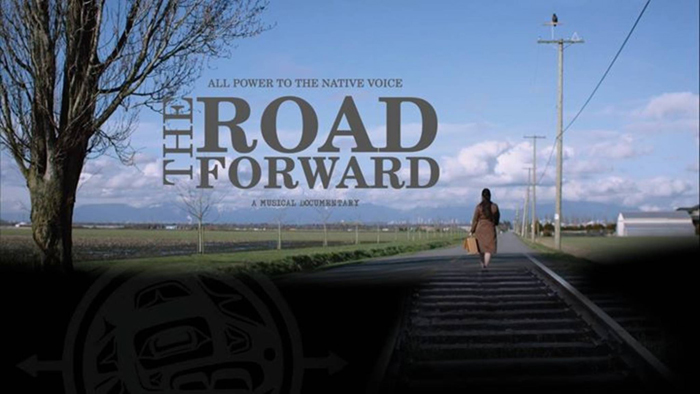On the night of Sept. 21, the Arts West Wing hosted a National Film Board screening reminding tearful students of the hardships that Canada’s indigenous population continues to face today. As part of its 7th annual Indigenous Awareness Week, McGill’s Indigenous Student Alliance (ISA) screened The Road Forward (2017), a documentary written and directed by Marie Clements. The film showcases the difficult journey that First Nations Peoples endure in order to survive in a settler colonial country. Through a powerful mix of both traditional and contemporary indigenous music and cinematography, the film explores salient, age-old questions with new forms of media and communication. As the credits roll, it is clear that The Road Forward succeeds at showing the audience just how much hurt still exists within this country we often admire.
The Road Forward captures viewers’ attention through the use of songs and powerful testimonials. This multimedia approach to documentary filmmaking, with contributions from a variety of creators, enables often uneducated viewers to interact with indigenous issues in a new way.
The documentary focuses on an indigenous newspaper called The Native Voice, which has played an integral role in publishing and connecting indigenous voices across the country including influential union groups like the Native Brotherhood.
The Native Voice is one example of Indigenous peoples creating their own spaces to discuss issues of importance—the film itself acts as another. Clements, being Métis, likes to use the traditional concept of storytelling to communicate with the audience. She has made a variety of films and documentaries specializing in showing how indigenous music can heal and strengthen the indigenous community. In her previous work, she explored National Inquiry for Missing and Murdered Indigenous Women.
One headline in The Native Voice reads: “1965: Indian Reserves Compared to Concentration Camps.” While purposefully uncomfortable viewing for a predominantly white audience, the film insists upon educating youth as a means of defeating the patterns of erasure pervading Canada’s history. Throughout the documentary, there are many powerful statements that make the audience think critically about abuse, exploitation, and reconciliation. The aforementioned headline was accompanied by two black-and-white photographs of an Indigenous reserve. Both photos revealed the reserves’ dire conditions, with the shocking reality that one of the pictures was taken in 2013. These pictures are what force audience members to have uncomfortable conversations—they’re meant to shock, but they’re also meant to promote a much-needed dialogue between Indigenous and non-Indigenous Peoples.
A brief discussion with the ISA after the movie led to students asking how they can help. This question was hard to answer, but the ISA students said that education is an important start. For instance, it is surprising how many people do not know about Residential Schools and the 60s Scoop—the government-sanctioned kidnapping of thousands of indigenous children for adoption. Due to this ignorance, indigenous protesters today are fighting for the same rights that were demanded centuries before. The Road Forward may not tread much new ground in terms of subject matter, but its message is just as vital as it always has been.








